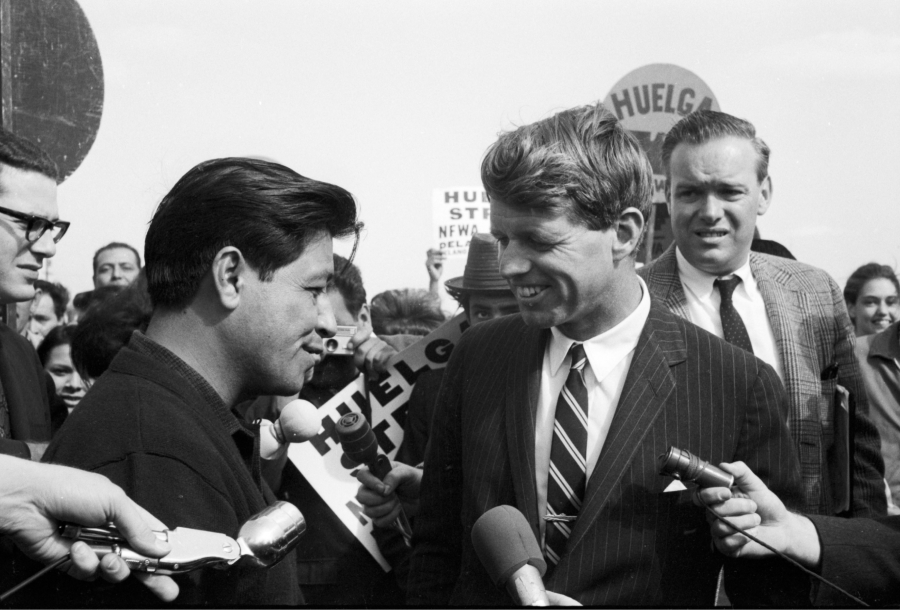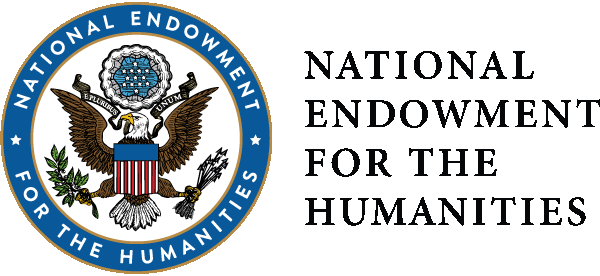U.S. Senate Subcommittee on Migratory Labor Hearing in Delano
U.S. Senate Subcommittee on Migratory Labor Hearing in Delano
Senators Robert F. Kennedy and Harrison Williams Jr. attending a labor hearing, Delano, 1966. Photo by John Kouns.
Kern County authorities attending a labor hearing, Delano, 1966. Photo by John Kouns.
César Chávez and Senator Robert F. Kennedy talking together before a labor hearing, Delano, 1966
Senator Robert Kennedy first met César Chávez in Delano in 1966 during the Senate Subcommittee hearings. They immediately hit it off and became close friends up until Senator Kennedy’s assassination in 1968. Kennedy became Chávez’s leading advocate in Washington DC and their associates were in frequent contact. When Chávez held an event to signify the end of his 23 day fast for nonviolence in 1968, Senator Kennedy visited Delano again and gave him the piece of bread that ended his fast.
Young man seated next to Dolores Huerta testifies during the labor Senate subcommittee hearing, Delano, 1966. Photo by John Kouns.
Tom & Ethel Bradley Center
California State University, Northridge
18111 Nordhoff Street, Northridge, CA 91330
Phone: (818) 677-1200 / Contact Us


